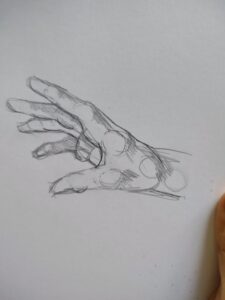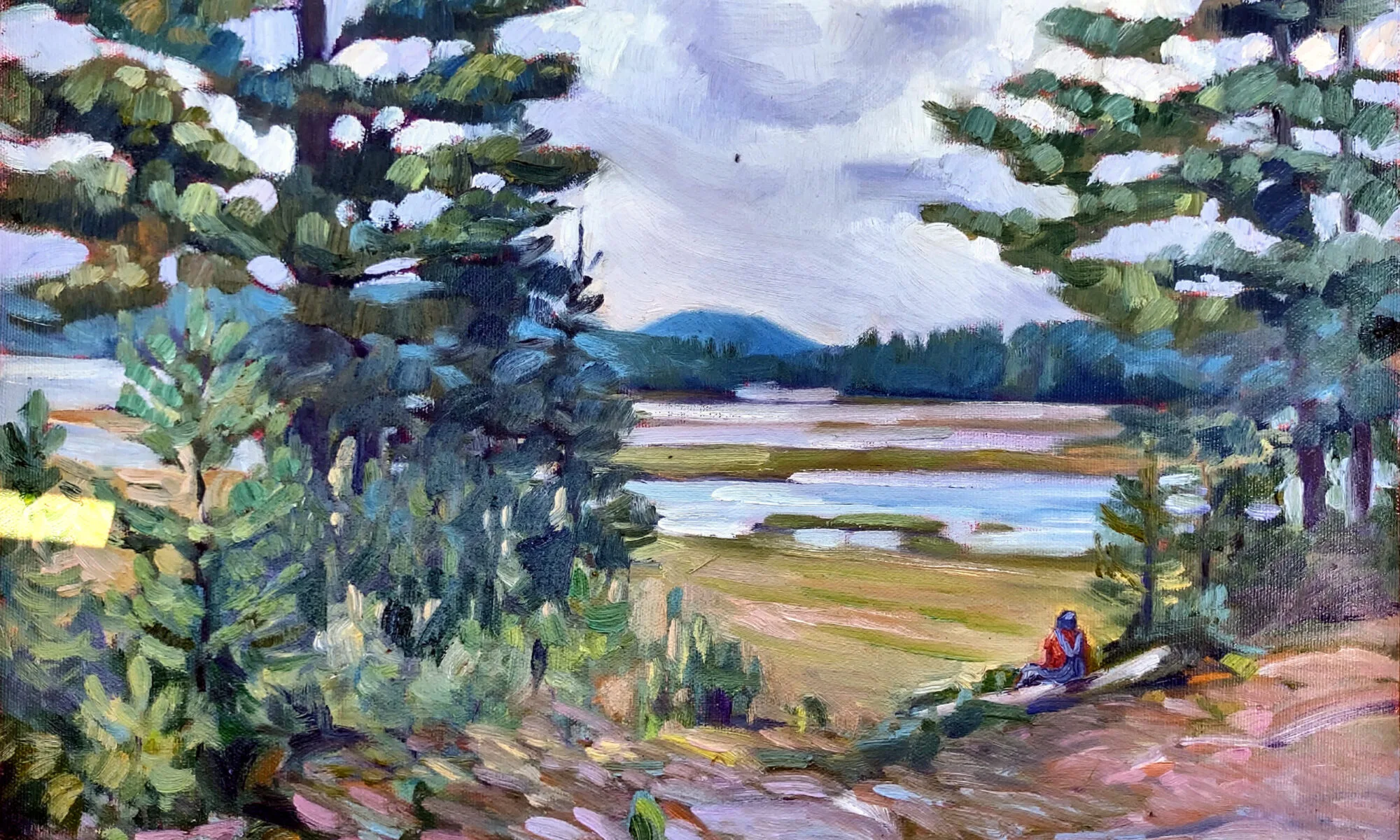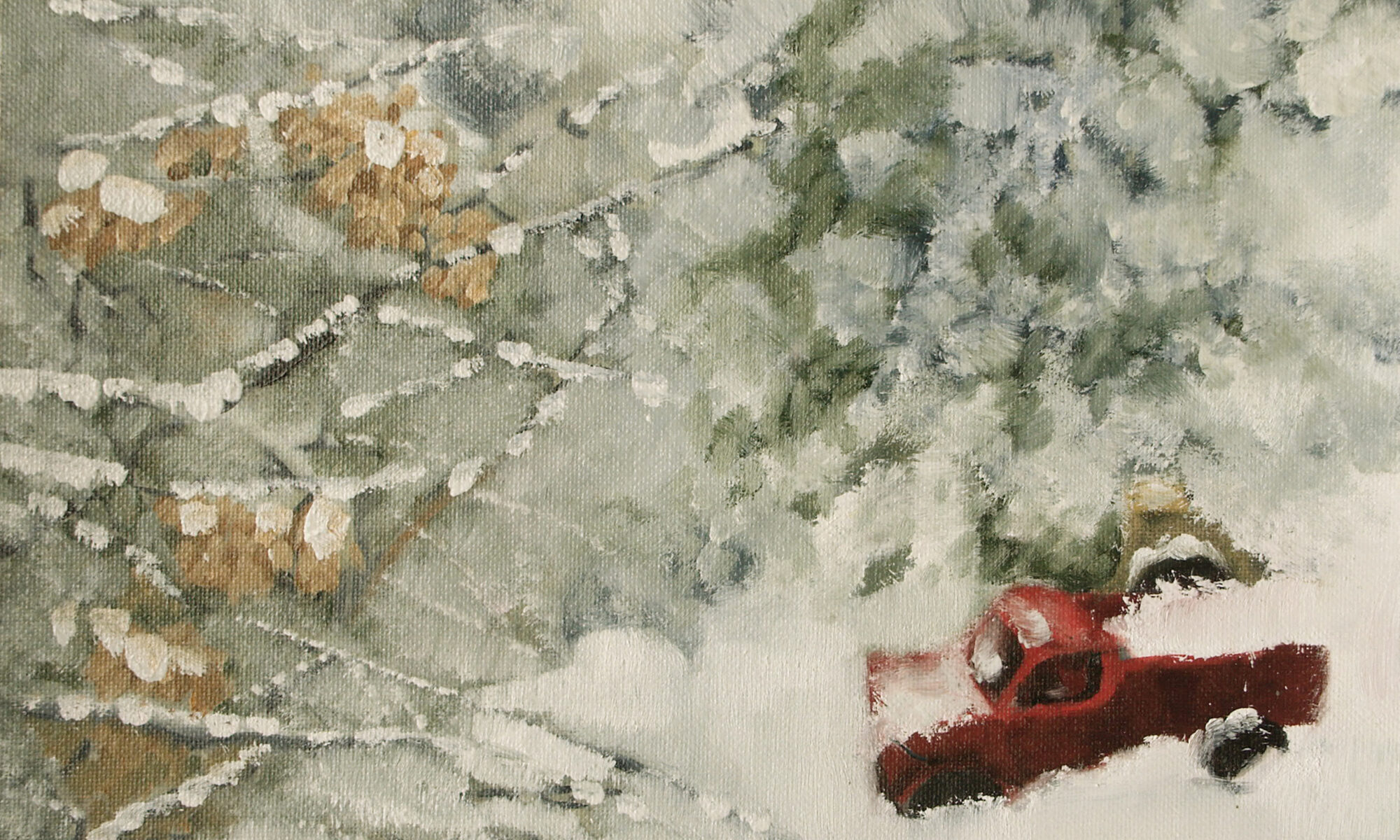
I have two students of similar ability and background. They started taking my Zoom classes around the same time. One retired last year and can devote himself to painting. The other has a high-pressure job that eats up lots of his time.
Which do you think is making faster progress right now?
“I wish I could wave a magic wand and save you from 60-hour weeks,” I told the latter student. Then he did something that surprised me—he arranged a three-week block of vacation time to stay home and paint.
Over several decades, I’ve seen this pattern: young people paint until they acquire houses, careers and families. Then there’s a long gap when they never pick up a brush. It isn’t until middle-age that most of us pick up painting again.
That’s not simply because we have more time; it’s the realization that our time on earth is finite, and if we don’t start now, we’ll never do it.

Time management is a universal problem
I struggle for time to paint, too. That’s absurd, but there are lots of other demands on my time—lesson planning, writing this blog and marketing.
In fact, that’s a universal problem among artists. Many of my professional peers work second jobs to afford the time to paint. That can take the form of a day job, running their own gallery, or teaching.

Can you make time to draw?
I take my sketchbook to meetings, to doctors’ appointments, to church—anywhere I’m expected to sit quietly. If you’re sitting with kids, you can engage them in your drawing. Children love telling you what to draw and they don’t really care how badly you execute.
You can draw other people surreptitiously, on the subway, in waiting rooms, or in the airport. Start with a fast gesture drawing and fill in what details you can before they wander off. At first, you’ll feel self-conscious and a bit sneaky, but most people don’t notice and don’t care.

Put away the cell phone
Recently, I’ve noticed my cell phone eating up time that I previously used to draw. I need to consciously put it away. That’s hard in a culture that encourages us to always feel ‘on demand.’
Make art a habit
I get up at 5 AM to write this blog, exercise, bathe, make breakfast, answer correspondence, and do a daily marketing meeting. I start projects in the early afternoon. If I maintain this routine, my brain settles into work with minimal hassle. Once the order is disturbed, I spend most of my energy getting back on track.
Our minds crave routine, so let’s give it to them. It’s easier to squeeze a half hour of drawing in after supper than to block out a week to paint, and you’ll improve more with brief, regular practice than with the occasional marathon.

Stop beating yourself up
Our schedules, like our closets, are jammed full. We can’t add one more thing without taking something out. Years ago, Bobbi Heath taught me an organizational technique with post-it notes. When you’ve filled up your workweek, you… just stop adding stuff.
“What activity is netting you the lowest return?” my daughter asks me. That’s not just a financial question. We collect obligations like boats collect barnacles. Some we can shed, some are ours just for a season, still others are lifelong and non-negotiable. Once you’ve eliminated what you can, take a clear-eyed look at what’s left. If that means you only have four hours a week to make art, stop beating yourself up about that. Four hours is still better than no hours at all.

